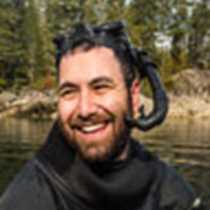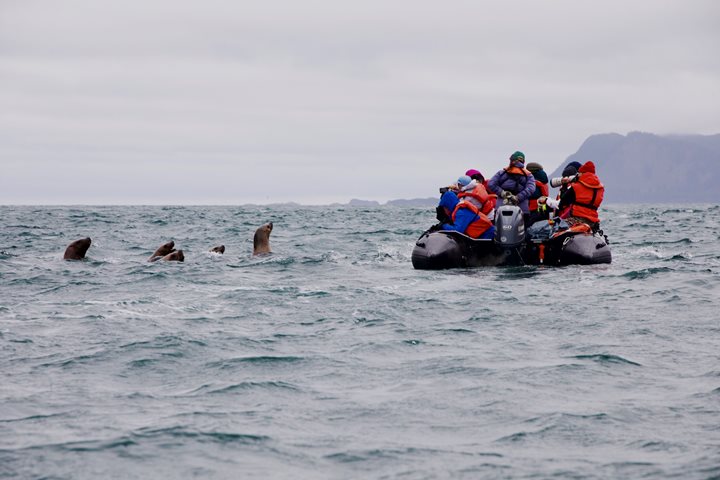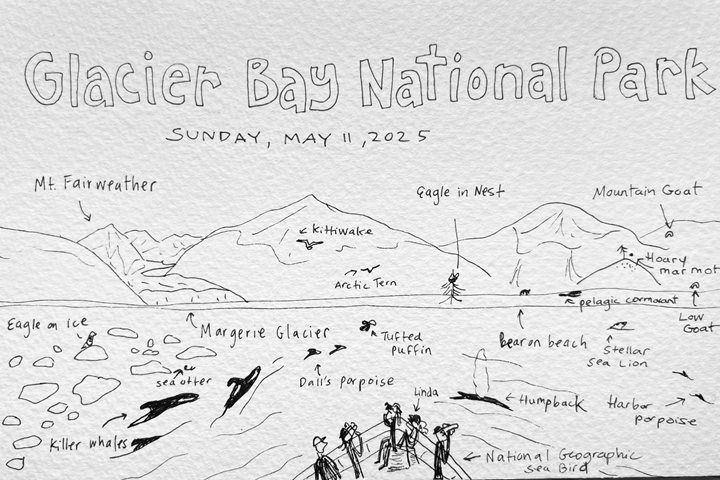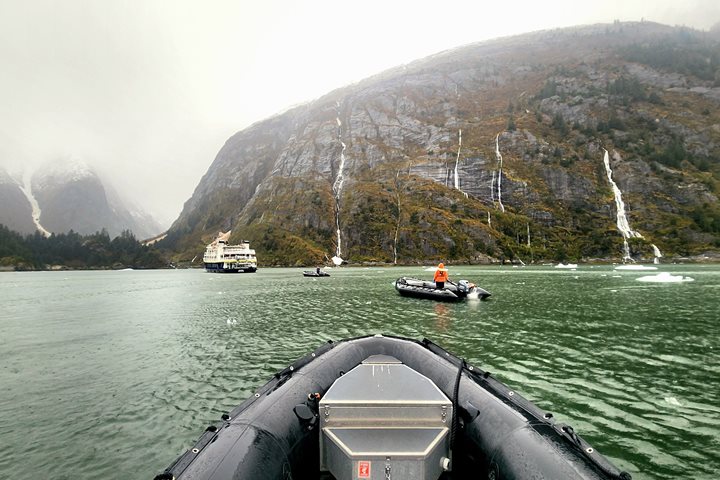Today we were in the traditional territory of the Kwakwaka'wakw people within the ‘Namgis First Nation. Here, people made a decision to stand up for their home, their ancestors, and their children. Across from Alert Bay, a Norwegian-owned company named Marine Harvest Canada had been operating a salmon farm for thirty years without the consent of the community. Native Pacific salmon and the Kwakwaka'wakw have entwined histories. The salmon provide food for them, and also for the forests on Cormorant Island. Those forests contain the cedar trees that are used to build big houses, whose bark is used to weave clothes and baskets, whose mighty trunks become poles that tell the history of the people here for all who visit. The historical abundance of salmon provided the Kwakwaka'wakw food not only during the summer but also for the winter that followed. The rich nutrients of the salmon helped keep the community healthy, while also feeding the intertidal — where another abundance of food can be found. Yet farmed Atlantic salmon here offered all the pitfalls of an organism occupying an ecosystem niche with none of the benefits. Marine Harvest Canada operated an open net salmon farm in the salmon’s migratory path, near their natal streams. These salmon farms allow less fit, pen-raised, non-native species to make their way into the local salmon cycle. They hybridize with the wild populations, which results in less fit offspring. They introduce disease and parasites to populations that have not been inoculated or fed antibiotics. They enter an ecosystem and invade a population that is already at risk due to climate change, adding stress to an already stressed cycle.
In 2017, the men, women, and children of the ‘Namgis Nation led an occupation and protest against a system that, whether intentional or not, affected their community and their existence. They occupied Swanson Island for 284 days; they were on their ancestral lands and given eviction notices. Ultimately they were forced to leave, but their occupation changed the way the Canadian government viewed fish farms and the input of the First Nations people. Starting in 2022, fish farms within British Columbia must have agreements with the ‘Namgis First Nation and/or other First Nations in order to operate. While the battle against fish farms in British Columbia is far from over, the actions and bravery of the ‘Namgis people show that the First Nations continue to be caretakers of their ecosystems, and that they are leading fights of which many of us are ignorant. We can honor them and their actions by listening to them, by supporting them at all levels of government, and by experiencing their living cultures and traditions in places like Alert Bay.
The T'sasała Cultural Group in the ‘Namgis Big House shared this knowledge with us. They also shared a traditional dance performance, in which they call out to salmon as they are returning to the home they share with the ‘Namgis First Nation. I thank ‘Namgis Cultural Leaders and T'sasała Cultural Group leaders Andrea and Donna Cranmer for their time, their wisdom, and their strength. They inspire all of us to fight for our shared planet, if not for our own sake, then for the sake of our children.
Thanks to Andrea and Donna Cramer for their knowledge and sharing the history of the Swanson Occupation.
Thanks to T'sasała Cultural Group for their moving performances and sharing their culture.







